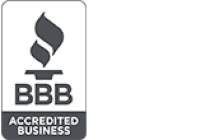The rise in second homes used as vacation rentals is a helpful way for owners to earn extra income and enjoy some tax benefits. However, the IRS has strict rules when deciding what qualifies as a tax deduction on your vacation home. Here’s the breakdown.
1. If your vacation home was rented out for 14 days or less per year, you don’t need to report any income
Ensure you keep good records of the days your vacation home was rented during the year. If your home was rented for 14 days or fewer, there’s no need to pay taxes on any rental income. The good news is that the numbers are not dependent on how much you charge for the home either — whether $100 per night or $1000 (or more). In this instance, your home is considered a personal residence and is taxed as such: i.e., you can deduct mortgage interest and property taxes in the same way you would your primary residence.
2. You will have to report rental income if your home is rented out for more than 14 days
Once you cross the 14-day threshold and rent your vacation home out for 15 days or more — you then become a landlord in the eyes of the IRS and are required to report your rental income. You can also deduct expenses associated with your rental home in the same way as you would any rental property.
However, suppose you are still using the home for a personal vacation home, too. In that case, you will need to clearly define with your accountant and tax return how many days were used for each and not blur the lines between rental and personal days.
If you use a vacation rental platform, they might report the rental revenue they collected for you to the IRS, so be sure that your own return correlates with your income. In addition, can deduct rental expenses in this instance, including paying for utilities, any maintenance work on the property, and travel to and from the property.
3. If you use the home personally for more than 14 days or more than 10% of the time it was rented, it is still considered a personal residence
The IRS will use whichever number is greater (over 14 days or more than 10% of rental days), to classify your home as a personal residence. It will allow you to deduct rental expenses up to the level of rental income. However, losses such as depreciation, property taxes, etc cannot be deducted in the same way as with a full-time rental property.
4. ‘Personal Days’ is a broad term in the eyes of the IRS
Trying to be clever when defining the term with the IRS is not a good idea. Their definition of the term is quite wide-ranging and includes days you or a family member of yours might use the days, even if they are paying rent. If you allow someone else to use the house as a favor for free, or for less than full market value, that is also considered a personal day.
5. If you limit your personal use to 14 days or 10% of the total time it was rented, you can deduct expenses as if it was a rental property business
In this case, the IRS views your vacation home as a business and taxes you while making the home eligible for tax deductions associated with a rental property. These include:
- Depreciation
- Expenses to fix up the property
- Insurance premiums
- Mortgage Interest
- Property taxes
- Utilities
Depending on your income, you might be eligible for as much as $25,000 in losses each year. For example, one loophole the IRS has not closed because it is impossible to monitor is leisure use versus time spent ‘maintaining’ the property. Therefore, the maintenance of a home by the homeowner is not considered leisure use. This is why many homeowners appear to spend quite a lot of time fixing their vacation homes each year!
Conclusion
It is possible to enjoy the use of a vacation home for personal use as well as make use of the tax benefits associated with owning a business. By carefully managing the number of days a home is used for personal and rental accommodation, it’s possible to have the best of both worlds.
If you use a short-term rental app to book your home, then be wary that they report their payouts to the IRS. If you supply them with inaccurate tax information, they will withhold a percentage of your income for tax purposes. This might be more than the taxes you actually owe. Each booking platform is different, so check on their tax reporting policies when using them.








